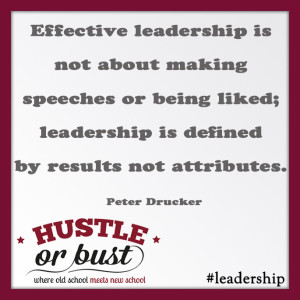Assorted Thoughts on MOOC Education and My Favorite TED Talks
 I was recently interviewed by Niya Koleva of the Bulgarian website Smartigraphs. I enjoyed answering Niya’s questions so much that I wanted to re-publish the interview on my blog. Currently, most of Smartigraphs’ content is in Bulgarian - the site was started by a group of Bulgarian students - but they are planning to increase the amount of English language content published on the site. As Niya told me, “We started as a small team of students and have now expanded and have 5 authors and 2 designers working on various social topics ranging from energy to elections. Most of us have graduated or are currently enrolled in Sofia University St. Kliment Ohridski, and only 2 people of the team are not studying Political science. We aim at explaining the world and complex concepts in a beautiful way through infographics. We are also working on an English version of the website so that one day a broader audience would be able to enjoy our work.” Below is the full interview, which originally appeared on Smartigraphs.
I was recently interviewed by Niya Koleva of the Bulgarian website Smartigraphs. I enjoyed answering Niya’s questions so much that I wanted to re-publish the interview on my blog. Currently, most of Smartigraphs’ content is in Bulgarian - the site was started by a group of Bulgarian students - but they are planning to increase the amount of English language content published on the site. As Niya told me, “We started as a small team of students and have now expanded and have 5 authors and 2 designers working on various social topics ranging from energy to elections. Most of us have graduated or are currently enrolled in Sofia University St. Kliment Ohridski, and only 2 people of the team are not studying Political science. We aim at explaining the world and complex concepts in a beautiful way through infographics. We are also working on an English version of the website so that one day a broader audience would be able to enjoy our work.” Below is the full interview, which originally appeared on Smartigraphs.
As you might know most of us are political science students and some of us aspire to work in this field. You have a formal bachelor’s in Politics from Oberlin College. Can you tell us why you chose politics and how was your first degree different from your self-made no-pay-MBA?
When I entered university, I wasn’t sure what I wanted to study. I knew I had an interest in international themes, but I hadn’t had much exposure outside of the US. I thought I might study languages. Then I took a class on international relations, and it opened up this whole new world for me. It gave me a way of systematizing information on a grand scale, and I had the first inkling that it might actually be possible to understand the global big picture, at least through a certain lens. I appreciated the political science approach because it was rigorous and because it had some explanatory power beyond what studying language and culture was able to provide. I got a great education at Oberlin, and I emerged a much more well-rounded and thoughtful person. My No-Pay MBA has been a similarly mind-expanding experience, but it is more targeted. In this phase of my education, I am very focused on learning skills that will make me a better professional, whereas my undergraduate education (and even my graduate education to some extent) was about shaping my overall world view.
You have listed International Development, International Education, and Intercultural Communication as top skills on your Linkedin profile. Do you think your non-traditional educational path helps you further develop them? What other skills have you acquired through MOOCs?
I do see these skills as some of my most valuable, thought I’m not sure that my current educational pursuit is helping me to develop them. It’s more the reverse – my experience in international development, international education and intercultural communication make me a better student. Additionally, having an international focus – and taking MOOCs as an international student - allows me to see both the great potential and the challenges that this type of education faces.
As for new skills that I’ve learned, in addition to my ever-expanding repertoire of analytical tools (strategic/competitive analysis, financial analysis, operational/efficiency analysis), I am honing an entrepreneurial mindset and a way of looking at the world that is all about identifying opportunities. I seem to have a new business idea at least once a week.
As far as I know you speak Spanish and French. Do you think it is possible for people to learn a language online effectively? Have you tried to improve your language skills through courses or educational platforms online? I believe I once read on your blog that you like learning foreign languages, exotic ones for that matter.
You are correct that I speak both French and Spanish. I am also trying to learn Kinyarwanda, the local language of Rwanda – with strong emphasis on the word trying! I’ve never actually tried to learn a language online, other than to do vocabulary or grammar drills. The thing I love about learning languages is that they are a window on a culture. So without the cultural experience, a lot of the joy of learning a language is lost for me. However, I do think that online tools could be helpful for someone learning a language. For those with fairly advanced language skills, a MOOC in a subject area of interest could provide a great forum for enhancing language skills. I have plans to do this myself, in fact. A reader of my blog recently suggested a MOOC on project management that is only available in French.
You have worked in Nicaragua and Rwanda. Has your professional experience in these countries influenced your learning experience in any way?
Absolutely! I work on issues of economic growth, so my work typically involves taking a macro-perspective on development, at the level of a value chain, a sector, or an economy as a whole. One of the things I have loved about my work is getting to observe how a private sector is built and how an economy grows increasingly more complex. In a fast-growing economy like Rwanda’s you practically watch that happen in front of your eyes. With my business courses, I am getting a micro-level view of how individual enterprises operate. Between the two, I am building a very well-rounded picture of how business works. At heart I’m a geographer – that’s what my master’s degree is in. Geography as a social science is fundamentally about how we as human beings interact with our environment, and the forces of business are huge in shaping the world we have built. I find a lot of joy and fulfillment in trying to understand those forces and in trying to use them to lift people out of poverty.
You have shared on your blog that your main frustration with MOOCs are the Discussion boards/forums. Do you still feel anxious about them? Some educational specialists consider them to be the most fascinating part of MOOCs because they become the medium for intercultural dialogue and spread of ideas. After engaging in so many classes, what’s your standing on this?
Anxious wouldn’t be the word I would use; I would say frustrated – and yes, I do still feel frustrated with discussion forums. In a way they just seem outdated. Wouldn’t it be better if students could use video conferencing to have discussions in small groups, face to face? Or if you could have a real-time chat with someone about the ideas that come up in a course? Of course connectivity issues can make those things challenging, but I find the discussion board format very impersonal and unsatisfying.
Of course I love the idea of people being able to connect with one another and learn from one another around a shared interest. My problem is more with the disjointed feel of discussion forums and the clutter that results from mandatory posting requirements.
I know you supplement your MOOC curriculum with TED talks. Could you share with us your most favorite ones? For instance Top 5?
I do love TED talks. Below are some of my favorites.
Hans Rosling: Global population growth, box by box
Jill Bolte Taylor: My stroke of insight
Jason Fried: Why work doesn’t happen at work






